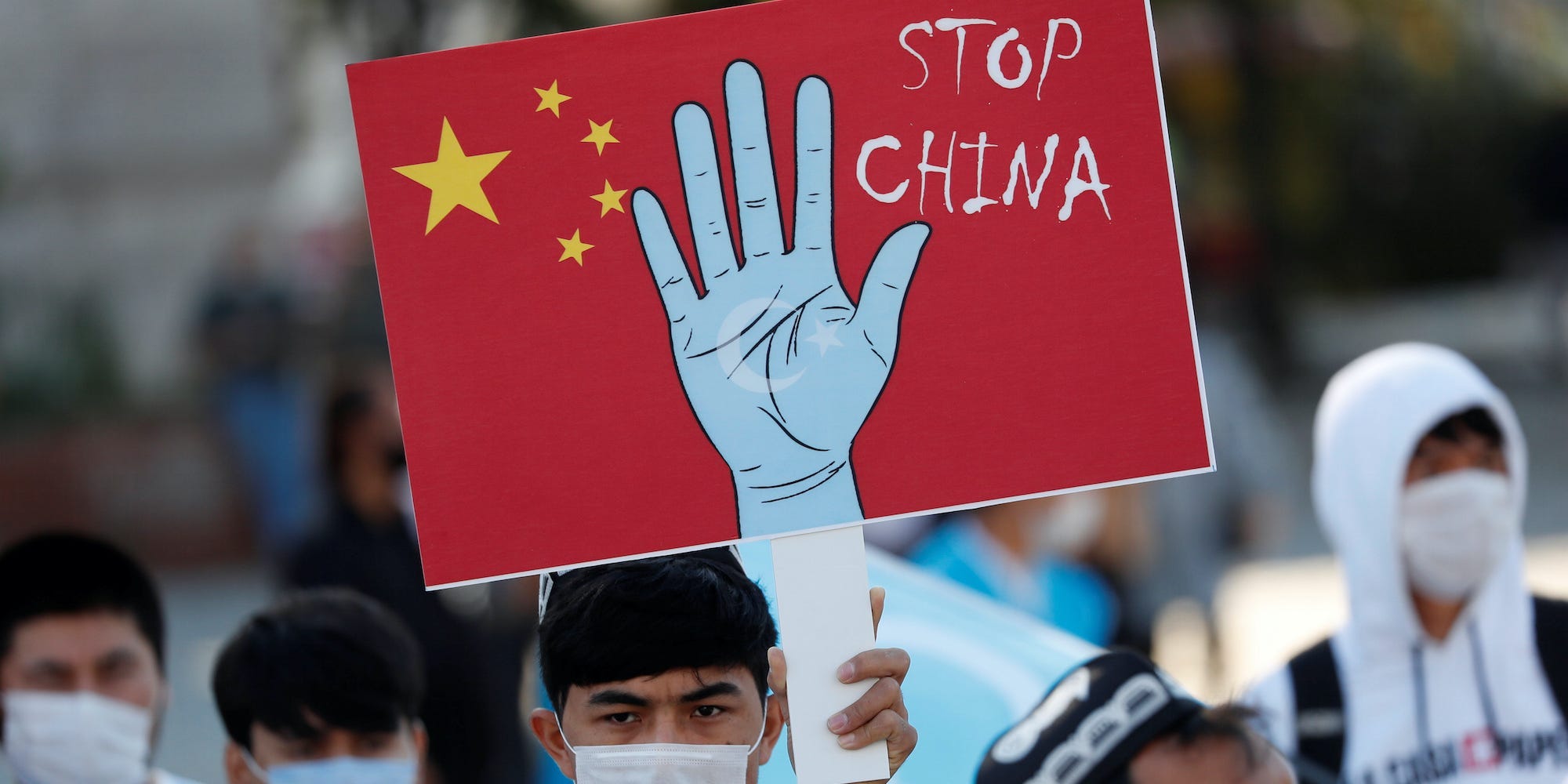
Murad Sezer/Reuters
- Several women told the BBC there was systemic rape inside China’s detention centers for Uighurs.
- The stories follow other reports of physical, sexual, and mental abuse inside the camps.
- China has repeatedly denied any abuse and said the facilities were “re-education centers.”
- Visit the Business section of Insider for more stories.
Women who fled detention camps in Xinjiang gave several accounts of systemic rape inside the centers, the BBC reported.
Tursunay Ziawudun, who spent nine months in the detention centers before eventually fleeing to the US, told the BBC that women were taken from their cells “every night” and raped.
“Perhaps this is the most unforgettable scar on me forever,” she told the BBC. Ziawudun said she was gang-raped three times.
She said men would select women they wanted from the cells, and have them taken to a dark room where there were no security cameras. She said the men wore masks even before the pandemic.
In May 2018, Ziawudun said she and a cellmate were taken out and shown to a Chinese man. Her cellmate was taken into one room, where she could be heard screaming, according to Ziawudun’s account to the BBC. Ziawudun said she was sent to the “dark room” – even after the man was told she was having medical issues and bleeding. There Ziawudun told the BBC: “They had an electric stick, I didn’t know what it was, and it was pushed inside my genital tract, torturing me with an electric shock.”
The BBC could not completely verify Ziawudun's story but reviewed travel documents and immigration records that corroborate the timeline of her story; her description of the camp matched satellite images, and her description of the treatment inside the camps matched those told by former detainees.
Gulzira Auelkhan, a Kazakh woman who was detained for 18 months in the camps told the BBC that she was forced to strip the Uighur women naked and handcuff them. After the Chinese men left them, she would clean the room.
"Then I would leave the women in the room and a man would enter - some Chinese man from outside or policeman. I sat silently next to the door, and when the man left the room I took the woman for a shower," Auelkhan said.
In recent years, the Chinese Communist Party constructed hundreds of prisons and detention centers in Xinjiang and the surrounding region, where the predominantly Muslim Turkic minority group lives. At least one million Uighurs have been detained in these camps.
Previous reports from the camps have alleged that detainees were forced to consume forbidden foods in Islam, mass surveillance, and dealt with various other forms of psychological and physical torture.
Chinese officials have repeatedly denied any abuse and claimed the camps were for re-education and to prevent extremism.
"The Chinese government protects the rights and interests of all ethnic minorities equally," a spokeswoman told the BBC.
Adrian Zenz, an expert on China's policies in Xinjiang told the BBC that the recent accounts provide "authoritative and detailed evidence of sexual abuse and torture at a level clearly greater than what we had assumed."
Previous reports have also shown that Uighur women were forcibly sterilized and given unwanted abortions as part of China's campaign to keep Muslim minorities' birth rate down.
Uighurs in Xinjiang, including some in detention camps, have also been moved across China to forcibly work in factories, a report from the Australian Strategic Policy Institute found.
A December Center for Global Policy report found that in 2018, at least 570,000 people belonging to ethnic minority groups in Uighur regions were sent to pick cotton.
Last month, then-Secretary of State Mike Pompeo called China's actions towards the Uighurs tantamount to genocide.
On January 19, Pompeo said "we are witnessing the systematic attempt to destroy Uighurs by the Chinese party-state" in the western Chinese region of Xinjiang.
